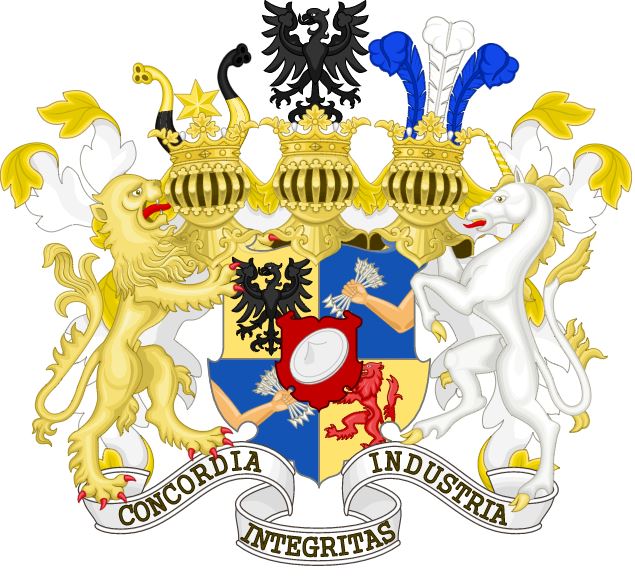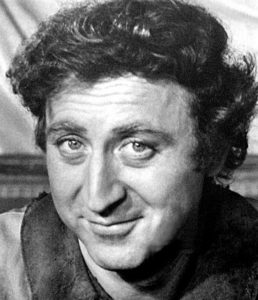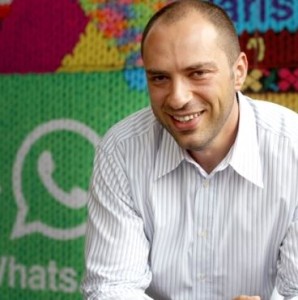In honour of Jew of the Week’s 7th birthday this November, we will feature a month-long series on the most famous (and sometimes infamous) Jewish family of all time: the Rothschilds. This is part two of five. Click here to see part one.
 The eldest son of Mayer Rothschild was Amschel Rothschild (1773-1855). He continued his father’s business in Frankfurt, and was made a baron in 1817 (becoming “Von Rothschild”). He was the most religious of the brothers, and tremendously helped poor Eastern European Jews, who nicknamed him “the pious Rothschild”. Unfortunately, he died childless, so his Frankfurt branch was taken over by siblings and nephews. The branch was permanently shut down in 1901. Mayer’s second son was Salomon Rothschild (1774-1855), head of the Vienna branch. He played a huge role in Austria’s history, sparking its industrial revolution, igniting the Austrian economy, and financing massive public projects, including Austria’s first railway network. In honour of this, Emperor Francis made him a baron in 1822 (making him Salomon von Rothschild). Ironically, he was still not an Austrian citizen, which Jews were barred from! It was only twenty years later that he was officially made Austria’s first Jewish citizen, paving the way for equal rights for all Jews. Unfortunately, just a few years later, a wave of anti-Semitic riots broke out in Austria, with Rothschild being its main target. He had to hand over his bank, and fled to Paris. Many of the precious artworks that he collected he donated to the Louvre. The Vienna branch of the bank would ultimately be put to an end by the Nazis (having already suffered a devastating blow during the 1929 stock market crash). The Naples branch went under even earlier, during the Italian Reunification. It was founded by Kalman “Carl” Rothschild (1788-1855), the fourth son. He transformed his bank into the dominant financier in Italy, and was also made a baron. One of his clients was the Vatican Bank, and witnesses were shocked that Kalman never kissed the Pope’s feet, which everyone – even kings – had to do in those days when meeting the Pope. Kalman died in the same year as his oldest brothers, perhaps from grief after his wife and son tragically passed away as well. The remaining two sons, in London and Paris, would become the most influential Rothschilds by far, establishing institutions that continue to operate until this day. Their life and achievements will be explored next week. Click here to go to Part Three.
The eldest son of Mayer Rothschild was Amschel Rothschild (1773-1855). He continued his father’s business in Frankfurt, and was made a baron in 1817 (becoming “Von Rothschild”). He was the most religious of the brothers, and tremendously helped poor Eastern European Jews, who nicknamed him “the pious Rothschild”. Unfortunately, he died childless, so his Frankfurt branch was taken over by siblings and nephews. The branch was permanently shut down in 1901. Mayer’s second son was Salomon Rothschild (1774-1855), head of the Vienna branch. He played a huge role in Austria’s history, sparking its industrial revolution, igniting the Austrian economy, and financing massive public projects, including Austria’s first railway network. In honour of this, Emperor Francis made him a baron in 1822 (making him Salomon von Rothschild). Ironically, he was still not an Austrian citizen, which Jews were barred from! It was only twenty years later that he was officially made Austria’s first Jewish citizen, paving the way for equal rights for all Jews. Unfortunately, just a few years later, a wave of anti-Semitic riots broke out in Austria, with Rothschild being its main target. He had to hand over his bank, and fled to Paris. Many of the precious artworks that he collected he donated to the Louvre. The Vienna branch of the bank would ultimately be put to an end by the Nazis (having already suffered a devastating blow during the 1929 stock market crash). The Naples branch went under even earlier, during the Italian Reunification. It was founded by Kalman “Carl” Rothschild (1788-1855), the fourth son. He transformed his bank into the dominant financier in Italy, and was also made a baron. One of his clients was the Vatican Bank, and witnesses were shocked that Kalman never kissed the Pope’s feet, which everyone – even kings – had to do in those days when meeting the Pope. Kalman died in the same year as his oldest brothers, perhaps from grief after his wife and son tragically passed away as well. The remaining two sons, in London and Paris, would become the most influential Rothschilds by far, establishing institutions that continue to operate until this day. Their life and achievements will be explored next week. Click here to go to Part Three.
Words of the Week
The Rothschilds are the wonders of modern banking… we see the descendants of Judah, after a persecution of two thousand years, peering above kings, rising higher than emperors, and holding a whole continent in the hollow of their hands…
– Niles’ Weekly Register, Volume 49 (1836)

Rothschild Coat of Arms. Among the interesting symbols is a Star of David at the top left, and a hand holding five arrows, representing the five Rothschild sons, based on Psalm 127: “Like arrows in the hand of a warrior, so are the children of one’s youth.” At the centre of the logo is a red shield (for “Rothschild”) with an image of the “Judenhut”, a hat that Jews were forced to wear in Europe to distinguish them from others.


